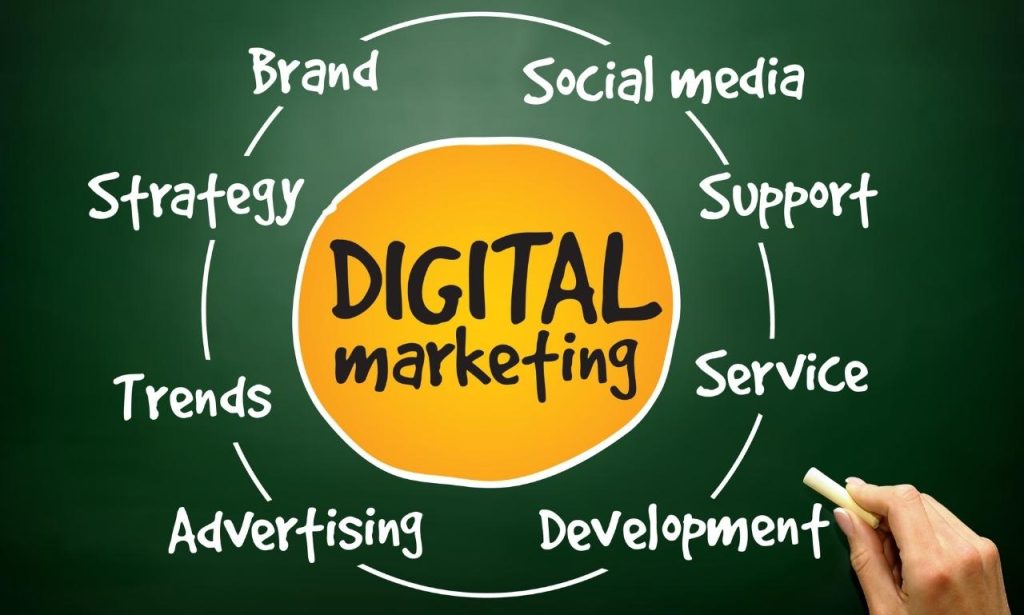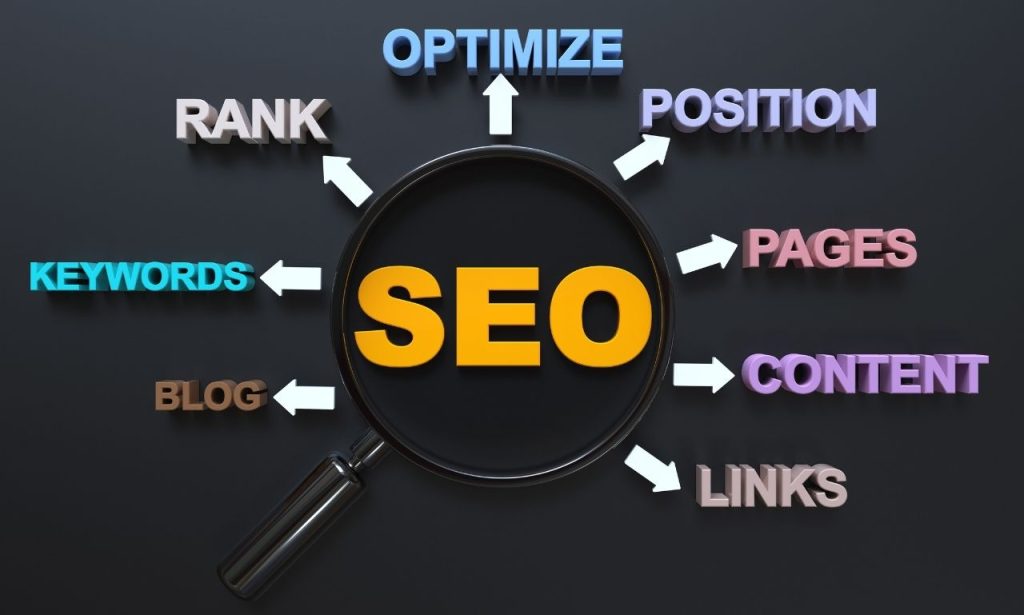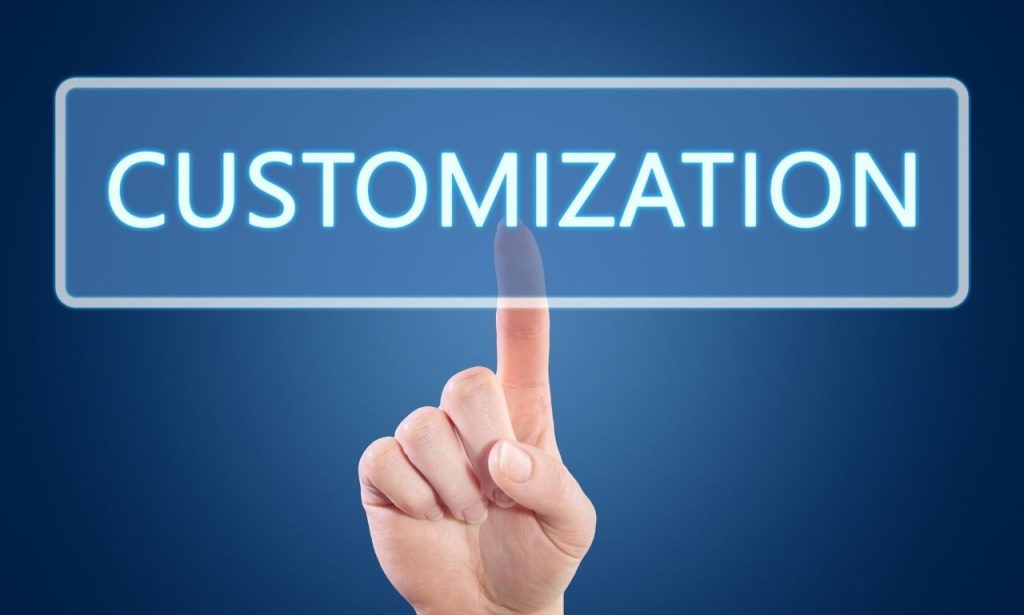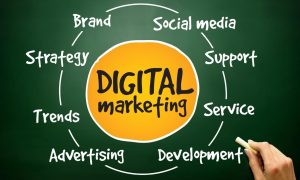Manufacturing firms once relied solely on trade shows and printed catalogs. Those days are quickly fading away. Today’s manufacturing landscape demands a fresh approach to connecting with prospects. Digital marketing has transformed how industrial companies reach their audience. The shift isn’t just a trend—it’s a necessity for survival in a competitive market.
Many manufacturing executives remain skeptical about online strategies. They wonder if traditional methods still work better for industrial products. The numbers tell a different story. Manufacturing companies embracing digital marketing see tangible results. Their sales pipelines grow stronger while spending less on acquisition.
Let’s explore why manufacturing marketing is going digital. We’ll also examine essential programs every industrial company should implement.
How Marketing in Manufacturing is Shifting Toward Digital
Changing Buyer Behaviors

The modern B2B buyer looks nothing like their counterpart from ten years ago. Research shows 70% of the buying journey happens before contacting sales. These prospects search online and gather information independently. They form opinions about your company long before any conversation occurs.
Engineers and procurement teams expect immediate answers to technical questions. Gone are the days when they’d wait for a sales meeting. Your online presence must address complex specifications and capabilities. Buyers want to see your expertise displayed through helpful content.
Manufacturing purchase decisions now involve multiple stakeholders. Each person researches independently using digital channels. Your marketing must speak to various roles throughout the buying committee.
Enhanced Reach and Engagement
Digital platforms break down geographical barriers that once limited growth. A small manufacturing operation can now reach global markets. This expanded reach opens opportunities previously available only to large corporations.
Online marketing allows for precise targeting of specific industries. You can focus on decision-makers who need your exact manufacturing capabilities. This targeted approach eliminates wasted effort on unlikely prospects.
Interactive content engages technical buyers in ways print never could. Video demonstrations of machinery showcase functionality better than static images, and virtual plant tours give prospects confidence in your operations from anywhere.
Measurable Results
Traditional marketing methods make tracking ROI notoriously difficult. Digital marketing changes this completely with detailed analytics. Every click, download, and website visit generates valuable data.
Manufacturing marketers can see exactly which content attracts qualified leads. They track prospects through each stage of consideration. This visibility helps optimize campaigns for better performance.
Data-driven decisions replace gut feelings in marketing departments. Numbers show which products generate the most interest online. Resources shift toward high-performing initiatives based on evidence.
Cost-Effective
The expense of attending multiple trade shows adds up quickly. Digital marketing typically delivers better results at a fraction of the cost. Your message reaches more targeted prospects without expensive travel.
Content created for digital channels continues working long after publication. A technical article might generate leads for years after you write it. This compounding effect multiplies your marketing investment over time.
Budget adjustments happen quickly with online campaigns. Manufacturing marketers can shift spending toward what works best, and underperforming initiatives are modified or eliminated based on performance data.
Adaptability
Market conditions change rapidly in manufacturing sectors. Digital marketing allows for nimble responses to new opportunities, and campaigns adjust quickly to address emerging needs or challenges.
Testing new messages happens faster online than with printed materials. You can evaluate customer response before major investments. This approach reduces risk when launching new manufacturing capabilities.
Global events like supply chain disruptions require immediate communication. Digital channels enable instant updates to customers and prospects, making your company appear responsive during challenging situations.
5 Essential Digital Marketing Programs for Manufacturing Companies
Search Engine Optimization (SEO)

SEO helps manufacturing websites appear when buyers search for solutions. Technical specifications and industry terms become valuable keywords. Your content must address specific problems engineers try to solve.
Optimizing for search goes beyond basic keywords today. Search engines reward manufacturing websites that demonstrate expertise. Detailed articles about production processes show your depth of knowledge.
Local SEO matters tremendously for regional manufacturing operations. Companies searching for nearby suppliers need to find you easily. Your digital presence should emphasize geographical service areas.
Content Marketing
Content marketing addresses complex technical questions buyers have about your processes. White papers, case studies, and specification sheets build credibility. These resources help prospects evaluate your capabilities thoroughly.
Engineers and technical buyers appreciate in-depth content about manufacturing methods. They seek information about durability, precision, and quality control, and your content should showcase your advantages in these areas.
Video content performs exceptionally well for manufacturing companies. Process demonstrations help buyers visualize your capabilities clearly, and simple explanations of complex manufacturing concepts build trust.
Social Media Marketing
Manufacturing companies find surprising success on specific social platforms. LinkedIn works particularly well for industrial B2B connections. Professional groups facilitate valuable discussions with potential customers.
Social media showcases the human side of manufacturing operations. Behind-the-scenes content highlights your team’s expertise. Posts featuring your employees humanize an otherwise technical business.
Industry news and insights position your company as a thought leader. Sharing relevant updates demonstrates your awareness of market trends. Followers appreciate content that helps them stay informed.
Email Marketing
Targeted email campaigns nurture manufacturing leads through long sales cycles. Technical content delivered regularly keeps your company top of mind. Prospects receive relevant information as they progress toward decisions.
Segmentation dramatically improves the effectiveness of manufacturing emails. Different stakeholders need different types of information, and purchasing managers care about different factors than engineers.
Automated workflows respond to specific prospect actions. When someone downloads technical specifications, follow-up emails address related questions. This timely response significantly improves engagement.
Paid Online Advertising
Precise targeting makes paid advertising especially valuable in manufacturing. Ads appear only to people searching for your specific capabilities. This efficiency improves return on marketing investment.
Google Ads captures buyers actively searching for manufacturing solutions. These prospects have immediate needs and high purchase intent. Your company appears exactly when decisions are being made.
Remarketing campaigns keep your company visible during lengthy consideration phases. Prospects see your ads as they research options across different websites. This visibility maintains awareness throughout their decision process.
Benefits of Investing in a Digital Marketing Strategy
Increased Visibility and Brand Awareness
Digital marketing expands your manufacturing brand’s reach exponentially. More potential customers discover your specialized capabilities, and your company enters consideration sets that were previously inaccessible.
Consistent online presence builds recognition within your industry niche. Prospects begin associating certain processes with your company name. This awareness pays dividends when needs arise.
Brand reputation develops through helpful online resources. Your generous sharing of knowledge builds goodwill. Prospects remember who helped them understand complex manufacturing concepts.
Higher Conversion Rates
Digital leads typically convert better than traditional marketing leads. These prospects educate themselves before contacting your company. Their qualification level is higher upon first interaction.
With digitally nurtured prospects, the sales process accelerates. Before conversations begin, many questions are answered through online content, and sales teams spend less time explaining the basics and more time closing deals.
Marketing automation helps identify the most promising opportunities. Behavior tracking reveals which prospects show serious buying intent, and sales teams prioritize these high-value interactions.
Better Customer Insights
Digital marketing reveals exactly what interests your potential customers. Their content consumption shows which capabilities matter most. This insight helps refine your product development priorities.
Feedback collected through digital channels informs business decisions. Comments, questions, and engagement patterns reveal market needs, and your manufacturing operation aligns more closely with customer expectations.
Competitive analysis becomes clearer through digital marketing tools. You see how prospects compare different manufacturing options. This visibility helps emphasize your unique advantages.
Enhanced Customer Engagement
Digital communication creates stronger connections with existing customers. Regular updates keep them informed about your evolving capabilities. These touchpoints often lead to additional business opportunities.
Online communities foster valuable discussions about manufacturing challenges. Your participation demonstrates a commitment to customer success. These interactions strengthen relationships beyond transactional levels.
Technical support improves through digital knowledge bases and videos. Customers find solutions to common questions independently. This self-service option increases satisfaction while reducing support costs.
Competitive Advantage
Many manufacturing companies still lag in digital marketing adoption. Early adopters gain significant advantages in online visibility. Your company appears more innovative and customer-focused.
Digital transformation signals a forward-thinking approach to business partners. It suggests similar progressive attitudes toward production methods, and prospects assume your manufacturing processes are equally modern.
Market changes get identified earlier through digital listening tools. Your company responds more quickly to emerging opportunities. This agility becomes increasingly valuable in volatile markets.
The impact of manufacturing digital transformation
Lowered expenses and higher margins
Digital marketing significantly reduces customer acquisition costs. Targeted approaches reach only the most promising prospects, and your sales team works with better-qualified opportunities.
Automation efficiently streamlines repetitive marketing tasks. Content distribution happens with minimal manual intervention, and staff members focus on strategy rather than implementation details.
Analytics reveal which manufacturing marketing investments deliver results. Resources shift away from underperforming initiatives. This optimization improves overall marketing ROI continuously.
Environmental benefits
Digital marketing reduces paper waste from traditional promotion methods. Fewer printed materials mean less environmental impact. This sustainability aligns with growing market expectations.
Virtual demonstrations replace some physical product samples. Digital alternatives reduce materials consumption and shipping impacts, and customers appreciate environmentally responsible approaches.
Remote capabilities reduce travel needs for both sales and customers. Virtual meetings and digital presentations work effectively for many interactions. Carbon footprints shrink while efficiency improves.
Enhanced quality
Digital feedback loops improve manufacturing quality continuously. Customer insights identify improvement opportunities quickly. Production processes adapt based on market feedback.
Online training resources help maintain consistent quality standards. Production teams access information whenever needed. This availability ensures that proper procedures are followed consistently.
Quality achievements gain visibility through digital channels. Certifications and performance metrics build market confidence. Transparent communication strengthens your manufacturing reputation.
Customization and flexibility

Digital marketing identifies specific customer requirements efficiently. Segmentation reveals distinct needs within your market. Production planning improves with this detailed understanding.
Manufacturing operations respond more nimbly to changing demands. Market intelligence flows continuously through digital channels, and production adjusts based on real-time information.
Custom capabilities receive proper promotion through targeted messaging. Specialized manufacturing services reach appropriate audiences. Digital channels connect niche offerings with specific needs.
Conclusion
Manufacturing marketing continues to shift decisively toward digital approaches. Companies embracing this transformation gain significant advantages. Their market presence grows while acquisition costs decrease.
The five essential programs—SEO, content marketing, social media, email, and paid advertising—work together powerfully. When properly integrated, each element strengthens the others. Manufacturing companies need all five components for maximum impact.
Digital transformation extends beyond marketing into production itself. The entire manufacturing operation becomes more responsive and customer-focused. This holistic approach delivers substantial competitive advantages.
Is your manufacturing company fully leveraging digital marketing opportunities? The time for hesitation has passed. Your competitors are likely already implementing these approaches. Start your digital transformation today.
Also Read: What are the Key Challenges and Effective Strategies for Achieving Retail Success?
FAQs
Most successful manufacturers invest 5-10% of revenue in marketing, with about 70% allocated to digital channels.
LinkedIn typically delivers the strongest results for B2B manufacturing companies, followed by YouTube for technical content.
Basic visibility improvements appear within 3-6 months, while significant lead generation typically takes 6-12 months.
Many manufacturers use a hybrid approach—managing some channels internally while partnering with specialists for technical aspects.



